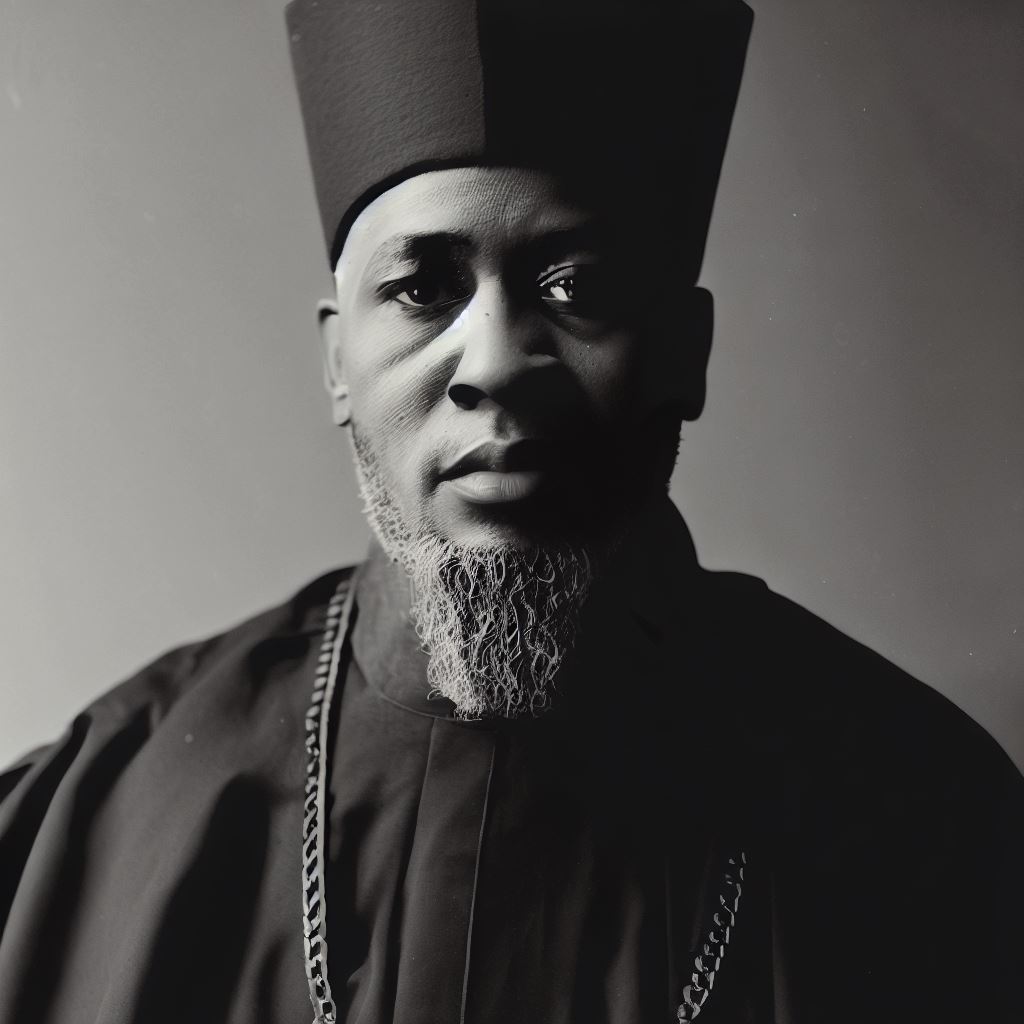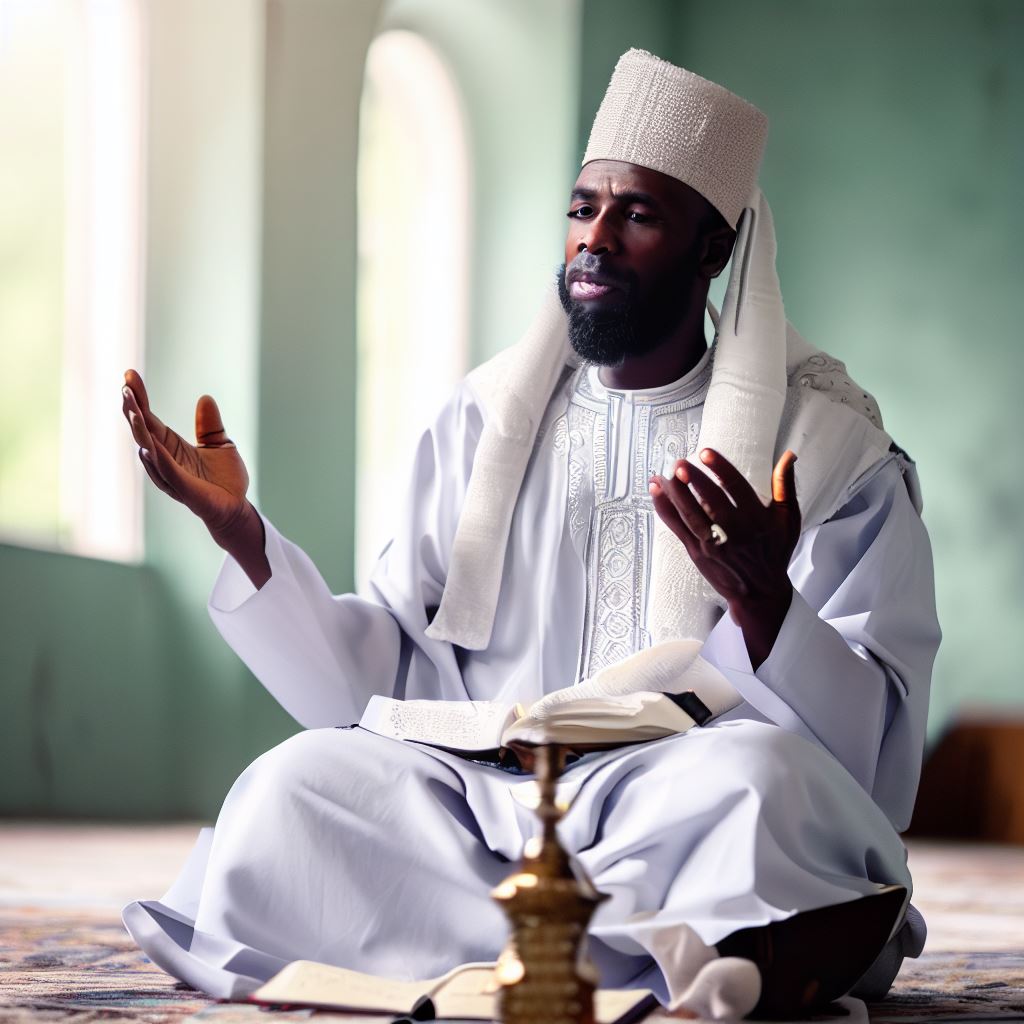Introduction
Supporting youth in Nigeria is crucial due to their potential to shape the future of the nation. Therefore, it is important to explore the role of Nigeria’s clergy in supporting its youth.
In Nigeria, the youth population is significant, comprising a large percentage of the country’s total population.
Nigeria’s youth population is one of the largest in the world, with millions of young people facing various challenges such as unemployment, poverty, and lack of educational opportunities.
Supporting them is essential for the country’s development.
The clergy plays a vital role in supporting Nigerian youth. They have a powerful platform to influence and guide young people towards positive behavior and choices.
With their moral authority, they can provide guidance, mentorship, and spiritual support to help young Nigerians navigate through the challenges they face.
The clergy’s role goes beyond spiritual guidance; they can also advocate for policies and programs that prioritize the welfare of young people.
By leveraging their influence, they can lobby for educational initiatives, job creation, and youth empowerment programs.
Additionally, the clergy can create safe spaces for youth to gather, share experiences, and receive counseling.
Through their community outreach initiatives, they can provide resources, skills training, and support networks for young people.
In essence, the clergy in Nigeria plays a significant role in supporting the country’s youth. By providing guidance, advocacy, and creating safe spaces, they contribute to the holistic development of young Nigerians.
Their involvement is essential to empower and equip the youth with the necessary tools to succeed in life and contribute to the nation’s progress.
The role of the clergy in guiding Nigerian youth
Spiritual guidance and moral teachings
The clergy in Nigeria play a vital role in supporting the youth by providing spiritual guidance and imparting moral teachings.
Through their religious roles, they contribute to the development and well-being of young people, molding them into responsible and upright individuals.
1. Instilling virtues and values
The clergy act as moral compasses, guiding the youth towards virtuous behavior.
They emphasize the importance of honesty, integrity, compassion, and respect, teaching young Nigerians to uphold these values in their daily lives.
By doing so, they help shape the character of the youth and instill a strong moral compass that guides their actions and decisions.
2. Promoting a sense of purpose
One significant role of the clergy is to inspire young people to find meaning and purpose in life. They provide guidance and support in helping the youth discover their talents, passions, and potential.
By encouraging them to pursue their goals and dreams, the clergy empower Nigerian youth to make positive contributions to their communities and society at large.
3. Fostering a strong ethical foundation
The clergy also play a crucial role in nurturing a strong ethical foundation in the youth. They teach the importance of ethical behavior, emphasizing the consequences of unethical actions.
By setting moral standards and providing moral guidance, the clergy help young Nigerians develop a deep understanding of right and wrong, enabling them to make ethical choices and become responsible citizens.
In addition to their spiritual and moral teachings, the clergy also provide emotional and psychological support to young people.
They serve as trusted confidants, offering guidance and counseling during times of difficulty and uncertainty.
The clergy’s presence and availability create a safe space for Nigerian youth to seek comfort, advice, and encouragement, helping them navigate the challenges of adolescence and young adulthood.
The influence of the clergy extends beyond the confines of religious institutions.
They actively engage with the youth in various community development programs, fostering an environment that encourages personal growth, social responsibility, and community service.
By organizing initiatives that address social issues such as poverty, education, and healthcare, the clergy empower young Nigerians to make positive changes in their communities, instilling in them a sense of social justice and the desire to contribute towards a better Nigeria.
In fact, the role of the clergy in guiding Nigerian youth goes beyond religious teachings.
They provide spiritual guidance, instill virtues and values, promote a sense of purpose, and foster a strong ethical foundation.
Their involvement in community development programs also helps shape the youth into responsible, compassionate, and socially conscious individuals.
The clergy’s unwavering commitment to supporting and nurturing young people plays a significant role in shaping Nigeria’s future.
Read: Inspiration from the Pulpit: Famous Nigerian Clergy Quotes
The clergy’s role in education and empowerment
The clergy in Nigeria play a significant role in supporting the youth, particularly in the field of education and empowerment.
They understand the importance of providing the younger generation with the necessary tools and knowledge to succeed in an ever-changing world.
Establishing schools and educational institutions
One of the primary ways in which the clergy fulfill their role is by establishing schools and other educational institutions.
These institutions serve as platforms for imparting knowledge and shaping the minds of young individuals.
They provide a safe and nurturing environment for learning, where children can grow intellectually, emotionally, and spiritually.
1. Providing quality education
The clergy ensure that the schools they establish offer quality education. They employ trained and competent teachers who are passionate about imparting knowledge and skills to the students.
By emphasizing academic excellence, the clergy seek to empower the youth with the necessary tools for personal and professional growth.
2. Promoting critical thinking and creativity
The clergy understand that education goes beyond rote learning. They encourage active engagement and critical thinking among students.
By promoting an environment that values creativity, they help young individuals explore their potential and develop their unique talents.
3. Encouraging entrepreneurship and skills development
Recognizing the importance of self-reliance, the clergy incorporate entrepreneurship programs in their educational institutions.
They expose the youth to practical skills and provide opportunities for them to develop entrepreneurial mindsets.
By nurturing their business acumen, the clergy empower the younger generation to create their own economic opportunities.
The clergy’s commitment to education and empowerment extends beyond textbooks and classrooms. They understand that the youth need more than just theoretical knowledge to navigate the challenges of life.
By establishing schools and educational institutions, they provide platforms for holistic development, encompassing cognitive, emotional, and social growth.
Through quality education, critical thinking, creativity, and entrepreneurship programs, the clergy equip the youth with essential tools for success.
They inspire them to dream big and embrace their potential, while also imparting moral values and ethics that shape their character.
Furthermore, the clergy’s involvement in education and empowerment helps counteract societal issues such as illiteracy, unemployment, and social vices.
By investing in the youth’s education, they contribute to the overall development of Nigeria and create a future generation capable of addressing the country’s challenges.
Overall, the clergy’s role in education and empowerment is crucial to Nigeria’s youth.
Through their schools and educational institutions, they provide quality education, promote critical thinking and creativity, and encourage entrepreneurship and skills development.
Their dedication to empowering the younger generation not only prepares them for future success but also contributes to the growth and prosperity of the nation as a whole.
Read: Understanding Conflicts and Resolutions in Nigeria’s Clergy

Clergy-led youth programs and initiatives
The clergy in Nigeria plays a crucial role in supporting the country’s youth through various programs and initiatives.
These endeavors are aimed at empowering young people, helping them make meaningful choices, and molding them into responsible citizens.
Youth mentoring programs
One significant area where clergy members contribute is through youth mentoring programs.
These programs go beyond merely providing guidance; they also offer counseling services to ensure the emotional well-being of young individuals.
Clergy-led mentors act as role models, guiding youth through life’s challenges and encouraging them to make wise decisions.
In addition to personal guidance, clergy members also play a critical role in assisting youth with career choices.
They provide valuable insights into different professions, helping young people explore their interests and find suitable career paths.
By sharing their own experiences and knowledge, clergy-led mentors enable youth to make informed decisions about their future.
Furthermore, clergy-led mentoring programs focus on personal development. They help youth build essential skills such as communication, problem-solving, and resilience.
Through various workshops and counseling sessions, young individuals are encouraged to develop their character, cultivate positive values, and learn important life lessons.
Youth empowerment projects
Apart from mentoring programs, clergy members also spearhead youth empowerment projects.
Vocational skill training programs are designed to equip young people with practical skills that can improve their employability.
These programs provide training in areas such as carpentry, plumbing, and computer literacy, helping youth gain self-sufficiency and financial independence.
Clergy-led initiatives also engage youth in community development activities.
By involving young individuals in projects that address societal needs, such as environmental conservation or building schools, clergy members promote a sense of responsibility and encourage youth to contribute positively to the society they belong to.
Through this involvement, young people develop a deeper sense of belonging and become active citizens who work towards the betterment of their communities.
Moreover, leadership and civic responsibility are essential aspects emphasized in clergy-led youth empowerment projects.
Through workshops, seminars, and mentorship, clergy members foster leadership skills among young individuals.
They teach the importance of ethical and responsible leadership, nurturing future leaders who can contribute positively to Nigeria’s growth and development.
Additionally, by promoting civic responsibility, clergy-led empowerment initiatives instill a sense of duty towards the nation, encouraging youth to actively participate in democratic processes and engage in activities that benefit their communities and country.
In review, clergy-led youth programs and initiatives in Nigeria have a significant impact on young individuals.
Through mentoring programs, clergy members provide guidance, counseling services, and support young people in making important life choices.
Youth empowerment projects focus on vocational skill training, community development, leadership development, and civic responsibility.
By actively engaging with the youth, the clergy plays a pivotal role in shaping the future of Nigeria, promoting a generation of responsible and empowered individuals.
Read: Celebrating Diversity: Different Sects in Nigeria’s Clergy
The clergy’s role in addressing social and economic challenges
The clergy in Nigeria play a crucial role in supporting youth and addressing the social and economic challenges they face.
Through their various initiatives, they promote social justice, equality, and provide necessary support during economic hardships.
Promoting social justice and equality
1. Advocating for the rights of marginalized youth
The clergy actively stand up for the rights of marginalized youth who often face societal exclusion and discrimination.
They raise awareness about the struggles these young individuals face and work towards enacting policies that protect their rights.
2. Addressing issues of discrimination and inequality
Nigeria’s clergy takes a strong stance against discrimination and inequality. They condemn any form of prejudice based on ethnicity, gender, or social status.
Their messages of inclusivity and equality help create a more harmonious society.
3. Encouraging societal inclusion and harmony
Clergy members in Nigeria actively work towards fostering a sense of unity and social cohesion.
Through their teachings and community outreach programs, they encourage the inclusion of all youth, regardless of their background, into the societal fabric.
Publish Your Professional Profile, Business or Brand
Showcase your expertise, gain trust, and boost visibility instantly on Professions.ng.
Publish NowProviding support during economic hardships
1. Offering comfort and guidance during financial struggles
During times of economic hardship, the clergy serve as a source of comfort and guidance for Nigerian youth.
They offer emotional and spiritual support to alleviate the stress and anxiety associated with financial difficulties.
2. Assisting in finding employment opportunities
Nigeria’s clergy recognizes the importance of employment in ensuring a stable future for the youth.
They actively help young individuals find employment opportunities, providing them with advice, connections, and encouragement throughout the job search process.
3. Promoting financial literacy and resourcefulness
To empower Nigerian youth economically, the clergy promotes financial literacy and resourcefulness.
They organize workshops, seminars, and training sessions to educate young individuals on money management, budgeting, and the importance of saving.
In a nutshell, Nigeria’s clergy plays an active role in supporting youth and addressing the social and economic challenges they face.
Through their efforts in promoting social justice, advocating for equality, providing support during economic hardships, and fostering financial literacy, they contribute to a more inclusive and empowered youth population.
By working hand in hand with the clergy, Nigerian youth can overcome various societal hurdles and achieve their full potential.
Read: Nigerian Clergy and Health Care: Contributions and Roles
You Might Also Like: Clergy and Politics: An In-depth Look at Nigeria’s Scenario
Conclusion
The clergy play a vital role in supporting Nigerian youth, providing guidance, mentorship, and spiritual development.
Fostering collaboration between the clergy and other sectors is imperative for effective youth support.
The implications for the future of Nigerian youth development lie in the ability of the clergy to continue their support and partnerships with different sectors of society.
Nigeria’s clergy play a vital role in supporting youth. They:
- Provide spiritual guidance and support to young people.
- Promote education and skills development among youth.
- Offer job training and employment opportunities to youth.
- Advocate for policies and programs that support youth.
The clergy’s support for youth is essential for building a better future for Nigeria. Young people are the future of the country, and they need the support of the clergy to reach their full potential.




